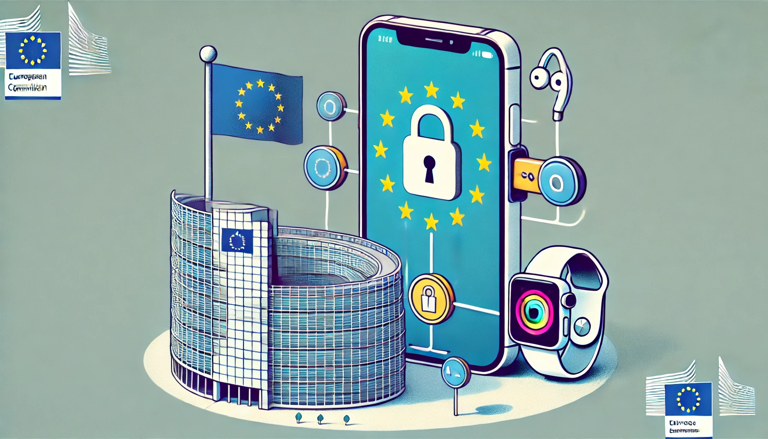The European Commission is taking steps to enforce legal requirements for Apple to open up iOS and iPadOS to third-party developers and hardware manufacturers. Building on previous regulations requiring support for alternative app stores and payment systems, this move aims to ensure wider interoperability with Apple’s devices.

Following an investigation that found Apple in violation of the Digital Markets Act (DMA), the European Commission has issued formal proceedings to outline how and when Apple must allow third-party access to iPhone hardware and software features. The objective is to improve compatibility with accessories like smartwatches and headphones from other manufacturers.
Margrethe Vestager, the EU’s Executive Vice-President in charge of competition policy, emphasized the importance of this step. “Today is the first time we use specification proceedings under the DMA to guide Apple towards effective compliance with its interoperability obligations through constructive dialogue,” Vestager said. “We are focused on ensuring fair and open digital markets.”
The Commission’s first specification proceeding will detail how Apple must enable connectivity for third-party devices. The second proceeding will address the timeline and process by which manufacturers can request access to Apple’s ecosystem, ensuring transparency, fairness, and timeliness.
While Apple has not responded publicly, it has previously stated its ongoing efforts to work with the EU on DMA compliance. According to the European Commission, the proceedings will conclude within six months.
This latest move is part of a broader campaign by the EU to regulate Big Tech. Vestager has been at the forefront of these efforts for a decade, targeting Apple specifically for its business practices. However, she will leave her position before the proceedings are finalized.
The Longstanding Dispute Between Apple and the EU
The clash between Apple and the European Union has been building for years, with both sides taking strong stances. Vestager criticized Apple’s decision to withhold certain features, like Apple Intelligence, from the EU. She has argued that Apple’s actions are designed to stifle competition, especially in markets where Apple already holds significant power.
Apple’s CEO Tim Cook has also weighed in on the disputes, previously attributing the EU’s regulatory moves to anti-American sentiment. In the early stages of the legal battles, Cook labeled a $13 billion tax demand on Apple’s operations in Ireland as “total political crap.”
The 2022 Digital Markets Act has further intensified the regulatory pressure on Apple. The law required Apple to support third-party app stores and open access to its iPhone’s NFC functionality, allowing competitors to develop alternatives to Apple Wallet.
While Apple has complied with many of these demands, companies like Epic Games continue to challenge Apple’s practices. The European Commission’s latest ruling is part of a continued effort to promote competition, rather than an entirely new set of requirements.
As the proceedings unfold, Apple will face increasing pressure to comply with the EU’s demands, further opening up its closed ecosystem to third-party developers and manufacturers.